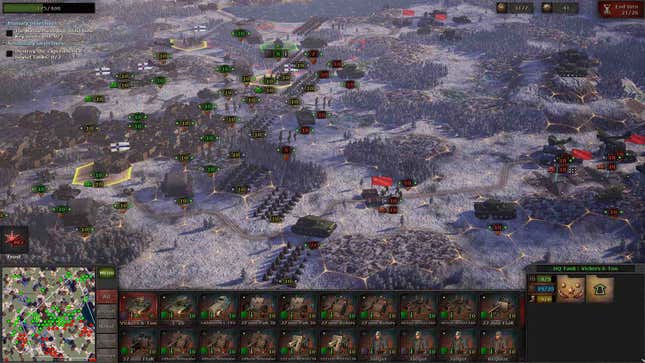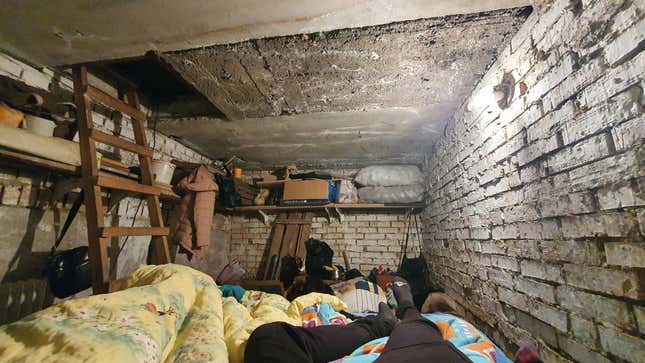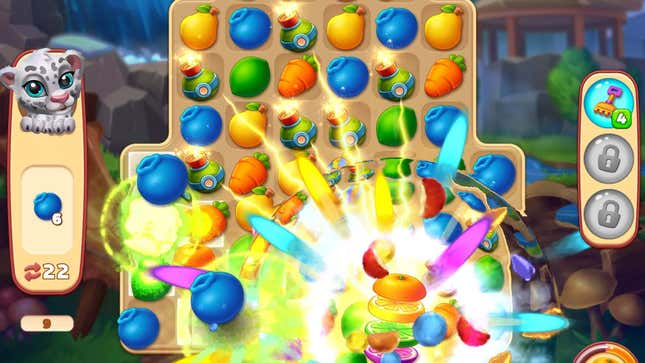When you hear the air alerts in the capital city of Ukraine, game developer Oleksandr Sienin told Kotaku, you make a judgment call. Maybe you wait in a safe place for the suggested 30 to 60 minutes minutes after the alerts go off, because you know that they denote missiles that could potentially hit Kyiv.
Or maybe you don’t wait, because you’re in the middle of buying groceries. The sirens go off two to three times per day, Sienin says, a constant that has led many to learn to live with the realities of Russian missile attacks raining down around the capital city during an active attempt at military occupation.
“Many people ignore [the sirens],” he says, “But it’s not safe to do so…You’re supposed to go to the bomb shelter.”
Sometimes the bomb shelter isn’t an option. There’s advice for that, too. “Find some safer place in your house, maybe behind two solid walls. Or somewhere there are no windows and glass, just [in case of] rocket strikes.”
Neither constant Russian missile attacks nor military occupation have stopped Ukrainian developers from making video games. But as evidenced by the calculations Sienen and many other developers have to make on a day-to-day basis just to keep a modicum of normalcy, the circumstances of their work is now completely changed by the war.
Russia’s ongoing invasion of Ukraine is currently in its tenth week, and the United Nations has stated that 11 million Ukrainians have fled their homes. Despite the shelling of Kyiv in March and the ongoing military conflict in other regions, many game developers, some of which spoke to Kotaku about their new conditions and unique challenges, opted to stay in Ukraine. Some didn’t have a choice, while others didn’t want to leave their home country. While the capital of Ukraine is no longer under siege, the country is still at war and military casualties continue to increase.
On February 24, Russian president Vladimir Putin declared war against Ukraine, and then launched the biggest invasion of a European country since World War II. The Russian military struck multiple fronts in Western Ukraine, and the capital city of Kyiv was under constant artillery attacks throughout March. The Russian army began to withdraw from Kyiv on April 1, though Russia is still attacking the city with missles. The war, meanwhile, continues to intensify in the Donbas region in southeastern Ukraine. Oleksandr Sienin is the Chief Operating Officer of Starni Games, a 16 person development studio that makes historical war games such as the Strategic Mind series. Their office is primarily based in Kyiv, though they have employees from all over Ukraine.

Despite everything he has to juggle, Sienin told Kotaku that his current circumstances are still better than when the war started. When the Russian forces first invaded Kyiv on February 25, the army stopped seven kilometers from the city. However, the military was still able to destroy several factories and over 200 apartments using air strikes. As a result, Sienin had to move one of his employees to his apartment for a month. Similarly, other developers have suggested to Kotaku that March was a particularly devastating month for anyone who lived or worked in the capital city. The developer lived very close to the front lines, and a building complex near his own apartment was recently hit by artillery fire. Despite the challenges of working on video games while under bombardment, the team was back at work ten days after the Russian military invaded Ukraine.
But the bombardment between both Russian and Ukrainian forces would last for hours throughout the night. Sienin said that even when the invaders were trying to target strategic locations, their weapons would sometimes go off course and hit a residential building. The ‘randomness’ of these air strikes added considerable uncertainty to life in Kyiv. When the Russians threatened to encircle Kyiv, many residents started to worry about food and electricity shortages. Sienin also mentioned that many developers were forced to leave pets behind, since the trains were already crowded with luggage and people who were trying to flee Kyiv. Despite these hardships, there are also game developers who chose to make the trip in the opposite direction.
“Game development is more important for me than [my] life,” says Andrew Kokhan, founder of NightCat Studios, an independent Ukrainian game development studio. On March 30, Kokhan traveled to Kyiv from the southern city of Izmail to retrieve the studio’s data storage devices. At the time, the city was still being shelled by Russian soldiers. While the dangers were obvious, Kokhan told Kotaku over a call that he actually had multiple reasons to enter Kyiv to collect the studio’s data storage devices amid an active war. “It’s almost five years of not just my work, but also the work of a big team. So it also would be very unfair [to lose the data].”
Nevertheless, he thought that the trip to Kyiv was “very scary” because Ukrainians had already known about the massacres in Bucha before it was liberated. “Right now, no one in Ukraine is safe,” he says. “I am as safe as any other Ukrainian… We don’t say ‘when the war is over.’ We say ‘when we win.’ But we are still in danger.”
The situation was the most dire for Ukrainians who lived in Bucha, a city located northwest of Kyiv. Oleksandr Androshchuk from Starni Games was living in Bucha during the Russian occupation, where he witnessed the worst of the Russian atrocities. He and his family lived in an underground basement near their house while the battle for Hostomel Airport was underway. But he says many local residents were killed, raped, or robbed by the occupying soldiers. According to Sienin, the developer tried to help one wounded civilian who had been shot by the occupiers, but the victim would die from a lack of adequate medical care. The developer was able to eventually leave the city on March 9, nearly three weeks before the city would be liberated on March 31.

But before that, Androshchuk slept in a garage, which his boss showed Kotaku via a photo from the developer’s underground basement in Bucha. He and his family hid there during the occupation as Russian soldiers looted their house aboveground. The developer had wanted to leave the city once the Russian tanks arrived, but escaping Bucha was much more difficult than anticipated. The road was blocked, the bridge was destroyed, and Russian troops were present in the area. Despite the Russian defense ministry offering a humanitarian ceasefire to allow civilians to evacuate, the Russian soldiers would not stop shelling Bucha. For a while, it was a choice between hiding in the basement or risk being hit by a missile on their way out of the city.
Two members of the studio lived in Donetsk and Luhansk, which is a politically contested area of southeast Ukraine (also called Donbas). Sienin called it a “puppet state of Russia ‘’ and said that his team members once lived under Russian rule. So in a way, they had already experienced the worst case scenario for if Ukraine was conquered by Russia. They eventually left their home region to work in Kyiv, but their previous experience with occupation heightened their anxiety about Russia’s military invasion. They had already seen what could happen in a war against Russia, and they still had family members living closer to the front line.
“We will always treat [war] seriously,” Sienin says. “Because our games are narrative driven…it’s neat when [studios] make games that are very heroic, but they don’t show the underside of war, like civilians being killed or raped… We state that civilians are being captured and taken to forced labor. Maybe you don’t show it explicitly, but we mention that such things are happening. We’re very serious about these events… It doesn’t really change our perspective, which proves that what we were telling about past events is true…Very few things have changed over the last century… I wouldn’t say it’s changed [my] perspective that much, but it made [the war] more visceral, more real.”
And these developers are not simply passive victims of the war. Studios such as NightCat Studios and Starni Games have been donating money to humanitarian efforts. Starni developers have also been assisting in other ways, such as bringing water to a damaged hospital, donating some clothing to refugees, or building barricades. However, simply showing up to work everyday is a miracle for many.
Kokhan seemed hopeful about the future of Ukrainian game development, despite the horrors of the war. He said: “I think that game developers who are still working, despite the fact that there is war in our country, are heroes too.” Part of his optimism comes from how people: “see that Ukraine is not just an independent country, but also contributes its own culture and in the game development industry” compared to when non-East Europeans thought that Ukraine was just “some region of Russia.”
It’s a spirit that is visible everywhere, but perhaps especially in the capital of Kyiv, where the studio WhaleApp employs hundreds of developers. One of them is Mariya Kapinos, a game designer whose colleagues continued to work in Kyiv despite the constant shellings.
“[In the] worst case scenario, [my colleague] would go to the bomb shelter, and then be like: ‘Okay… I’m going to the bomb shelter. Like it’s complicated, but I still can work.’ I’m like: ‘Wait, you’re in a bomb shelter?’’ The person would answer: “Yes. My laptop is here with me, there’ll be wi-fi here, and I’m working.”
When asked about why people continue to go to work while their city was still under constant attack, Kapinos responded that Ukrainians think that they can contribute more to the war effort [than joining the military] by going to work and donating their incomes. She characterized her coworkers as “extremely responsible” and that “the fact that there is a war starting doesn’t mean that you stop caring about the small things like work.”

However, game development was much more complicated when the workers’ city was under siege. While Kapinos was on a work call, she heard an unusual noise on the other end. When she asked what the sound was, her coworker responded: “Oh, there’s just bomb passing by. Like a bomb flying over our house. Don’t pay attention.” All she could think was: “How can you not pay attention to something like that?”
Even as a remote worker who escaped to Poland at the beginning of the war, Kapinos is still deeply affected by the invasion of her home country. Her mother forced her to leave the country, but she and many family members chose to remain in Ukraine. She experienced severe health issues during the first two weeks of the invasion, and it was very difficult to maintain the illusion that she was coping well with the war. She said: “Imagine that you had a home, you had a place, [and] you had a stable life. We’ve been working for that. And then it’s just gone. That’s very hard for people.”
It helps that the studio provides psychologists and regular check-ins. “I’ve been working with them for almost three years, and people around me are very caring,” said Kapinos. “And I’m so grateful that when it all started, people from the company would call me and ask me how I’m doing.”
And with time, one of her friends in Bucha, center of some of the worst massacres of the war, has taught her how to cope. Kapinos would see her friend posting photos of her ruined house on social media, and then a photo of a coffee mug. Kapinos asked how she could do that, to which her friend responded: “If I’m being hysterical or panicking, how would that help in any way? Why can’t I just post a nice photo of something that happened in my life?”
After that conversation, Kapinos started making coffee with oranges again, which she hadn’t done since before the war. She told Kotaku: “I feel like I’m bringing some small things back into my life. Because with traveling and the war, there is no space for the things that make you actually happy.”
It was incredibly jarring for her to see photos of death occurring in familiar places such as Bucha, where her family’s summer home was located. “[The trauma] multiplies ten times when you know the street where [atrocities] happen. So that definitely complicated my work.” However, she continued: “I realized that no matter what happens, life just continues.”
Correction 5/5/2022 1:24 p.m. ET: The spelling of a surname and the formatting of a studio name were corrected.
